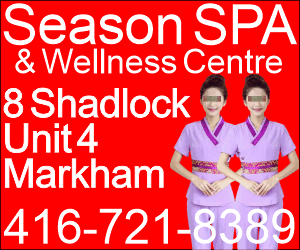CORONA: City cracks down on illicit massage parlors

Corona police are cracking down on illicit massage parlors.A legitimate business is shown here in Rancho Cucamonga.
STAN LIM, FILE PHOTO
Related article »
MASSAGE PARLOR RULES
Corona police are cracking down on illicit massage parlors.A legitimate business is shown here in Rancho Cucamonga.
STAN LIM, FILE PHOTO
Related article »
2008: SB-731 creates the nonprofit California Massage Therapy Council to regulate massage therapists and businesses. An influx of massage businesses come to the region.
2009-14: System not in place to regulate illicit businesses, police say.
Jan. 1, 2015: AB-1147 allows cities to issue land use permits for massage businesses. Therapy Council still responsible for certification.
Rampant prostitution led to the closure of nearly two-thirds of Corona’s massage parlors in the past 13 months, police say.
Since Jan. 1, 2015, police have shut down 17 massage businesses operating as fronts for prostitution, Corona police Sgt. Scott Musgrave said. Investigations are underway at some of the remaining 10 businesses.
“Lots of illegal businesses we’ve dealt with opened up in the past three to four years,” Musgrave said. “A system wasn’t in place to regulate them.”
The latest crackdown is part of a multi-agency effort designed to expose fake masseuses and provide stricter guidelines for the businesses who employ them.
Before 2009, each city was responsible for certifying massage therapists and technicians in its jurisdiction. That changed with the Massage Therapy Act.
From 2009-2015, the California Massage Therapy Council was put in charge of issuing voluntary certifications to massage technicians. The idea was to streamline certifications for therapists working in several cities, council CEO Ahmos Netanel said. Otherwise, they would have had to get permits in each city they were working.
But SB-731, passed in 2008, contained a tricky provision: if everyone working at a massage business is certified, the city must apply the same land use restrictions to other professional businesses. The provision offered protection from local zoning and land use laws, and made it harder for local jurisdictions to restrict the opening of illicit businesses, Netanel said.
“Some cities allowed (massage businesses) to open without making sure everyone was certified,” Netanel said, adding that he was not directly referencing Corona.
Once SB-731 was enacted, the number of local massage parlors skyrocketed, said Corona police Sgt. Paul Mercado, who was part of the city’s vice squad targeting gambling, narcotics, and prostitution at the time the law was passed.
“The state was handing out certifications like crazy,” Mercado said.
At one point there were 52 massage parlors in town, most along a half-mile stretch of Sixth Street, just west of Grand Boulevard, Mercado said. The council does not keep data on the number of massage businesses in the state.
There were loopholes in the new law, too. Before the latest Massage Therapy Act took effect in 2015, the council’s guidelines for denying licensure was summed up in a few terse guidelines, such as outlawing “unprofessional conduct” and “sexually-related crimes.”
The new law, enacted in 2015 and known as the Massage Therapy Act, is clearer about contact and attire. For example, the new law forbids “massaging of the genitals” and “unprofessional attire” such as see-through clothes or bathing suits.
Questionable businesses cast a negative light on legitimate massage businesses, Mercado said. By offering hour-long massages for $40 per hour, they undercut some established businesses .
“It was a quality of life issue at the time, and it was giving a bad name to legitimate businesses,” Mercado said.
Christine Loiacano has been a manager at Massage Envy in south Corona since 2008. She said the business, identified by police as one of several reputable massage parlors in the city, was not affected by new competitors offering illicit services. Loiacano said Massage Envy has a loyal clientele that “depends on high standards for licensing and education.” Illegal businesses attract a different type of customer, she said.
An hour-long massage at Massage Envy costs $100 for non-members. Loiacano said a $40 price tag is an indicator that a business is cutting corners.
Netanel said it’s up to local law enforcement to make sure massage businesses aren’t operating as brothels. He said the council’s goal is to provide a statewide certification process for greater public protection, not less.
“We assist local governments and law enforcement in keeping the highest standard by vetting certificate holders,” Netanel said.
The Massage Therapy Act allows local jurisdictions to enact their own land-use and zoning ordinances on massage parlors, a useful addition for jurisdictions statewide, Netanel said.
Contact the writer: 951-368-9644, poneill@pe.com, @PE_PatrickO
This entry passed through the Full-Text RSS service - if this is your content and you're reading it on someone else's site, please read the FAQ at fivefilters.org/content-only/faq.php#publishers.




































































































